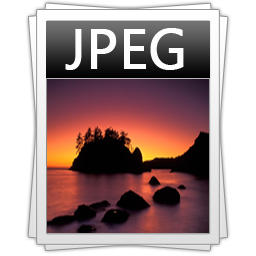| |
|
JPEG (Joint Photographic Experts Group) Image
Format
Format name: Joint Photographic Experts Group
Extension: .jpg, .jpeg, .jpe, .jfif, .thm
 JPEG is the best-known and most
universal image format. Being extremely popular, it is supported by many bitmap
image editors and viewers. The J.P.E.G. format is well suited for storing
photorealistic, full-color images taken with a digital camera. J.P.E.G. files have a
relatively small size, yet provide acceptable image quality, so they can be used
for emailing pictures or posting them on the Web. JPEG is the best-known and most
universal image format. Being extremely popular, it is supported by many bitmap
image editors and viewers. The J.P.E.G. format is well suited for storing
photorealistic, full-color images taken with a digital camera. J.P.E.G. files have a
relatively small size, yet provide acceptable image quality, so they can be used
for emailing pictures or posting them on the Web.
The abbreviation J.P.E.G. stands for Joint
Photographic Experts Group, the committee that developed the format. J.P.E.G. files
can have the following extensions: .jpg, .jpeg, .jfif, or .jpe. The .jpg
extension is the one that is most widely used. The J.P.E.G. format supports a
color depth of 24 bits, which corresponds to about 16.7 million of colors, while
GIF supports at most 256 colors.
J.P.E.G. is
notable for its lossy data compression algorithm, thanks to which an original
image file can be quickly compressed to about 2 percent of its initial size.
However, a small file size doesn't mean that the original image quality is fully
preserved. At the maximum degree of compression, all details of the picture are
lost, and it becomes filled with gray blocks. At average compression, the
approximate information about the color of each area of the picture is stored.
The higher the compression, the less original information is preserved. That's
the J.P.E.G.'s main difference from other bitmap formats. |
|
|